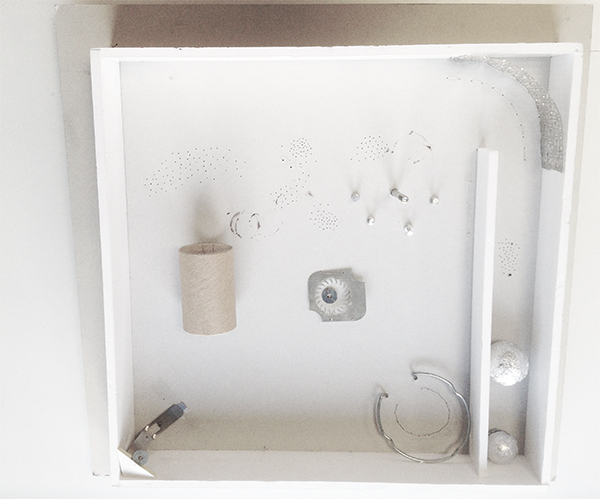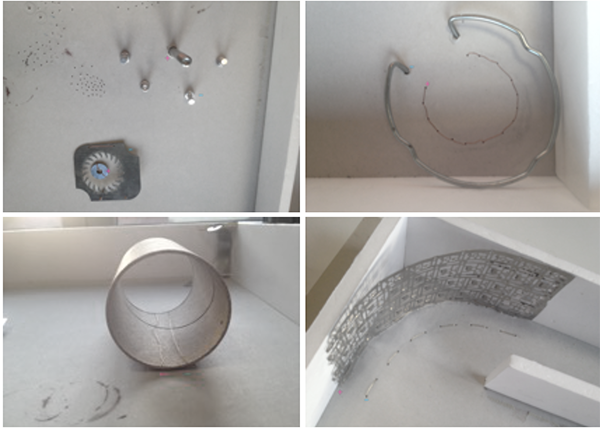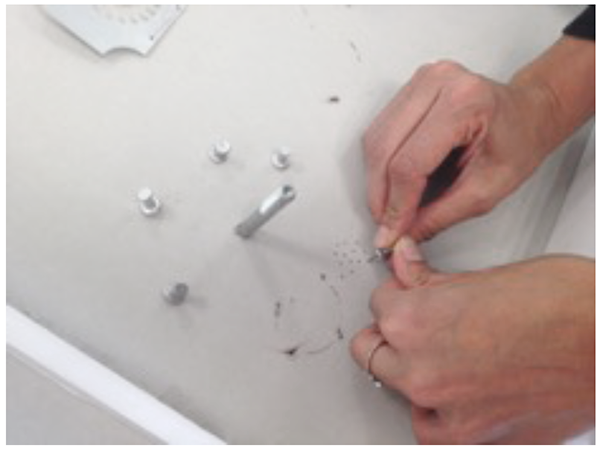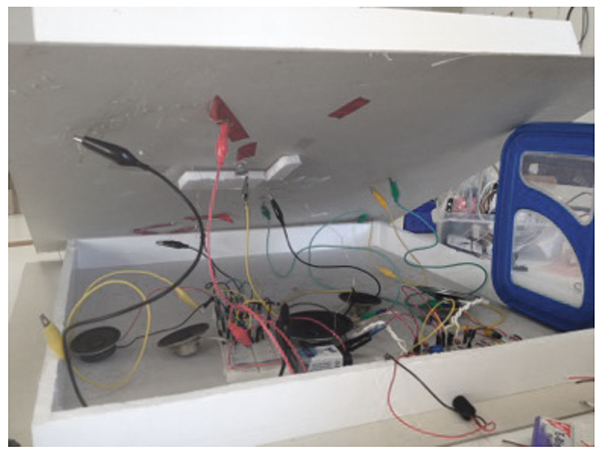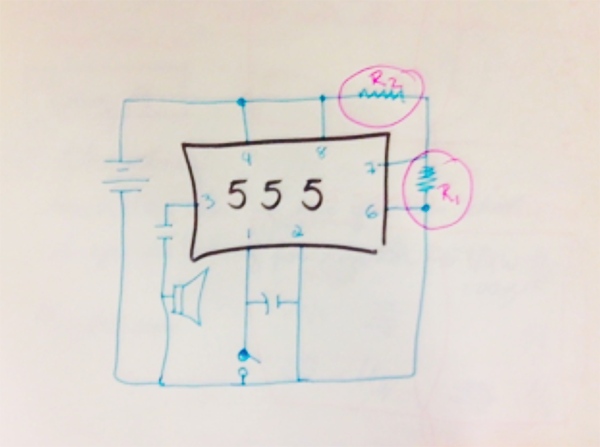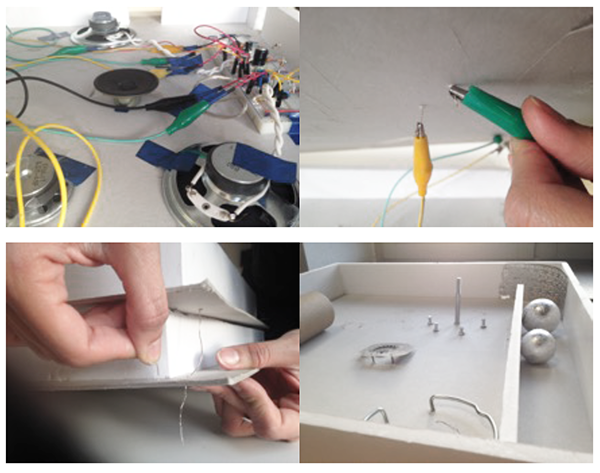| Line 2: | Line 2: | ||
== ASSIGNMENT 1== | == ASSIGNMENT 1 - IMPROBABLE SWITCH== | ||
<br> | <br> | ||
---- | |||
[[File:pinballswich1.jpg]] | |||
Ayla and me decided to make "simple pinball switches" in a box | |||
We went through some trash bins on the campus and found some thicker cardboard | |||
boxes, probably used by architecture students. We also found some conductive | |||
materials that were our six obstacles aka our six switches. Between the two | |||
cardboard boxes we put two breadboards that were creating five sounds. With the | |||
help of some alligator clips we connected every obstacle on the inner side with | |||
some copper wire to the breadboards. | |||
[[File:pinballswich7.jpg]] | |||
So each obstacle was one part of the switch. The circuit was closed when the ball | |||
that was wrapped in aluminium foil touched the positive and the negative part of | |||
the obstacle. | |||
[[File:pinballswich8.jpg]] | |||
Because the speakers were inside the box, the sounds were a bit silent so we made | |||
some holes on the sides of the box and also some smaller ones on the board itself. | |||
[[File:pinballswich3.jpg]] | |||
While building we realized that it's always that you have to think about how to attach something to another part, make it stiff or make it flexible, also. | |||
Inside the machine, we worked with five 555 timers in two different breadboards. | |||
The main constructions was the same but the values were varying in relation to different values of the resistors between the pins 6-7 and 7-8 and the capacitors between pins 1-2 and 3. | |||
[[File:pinballswich4.jpg]] | |||
Circuits: | |||
1 ) R2 : 1 M ohm 2) R2: 10K ohm 3) R2: 100K ohm | |||
R1 : 100 K ohm R1: 10K ohm R1: 10K ohm | |||
1 - 2 :0.1 μF 1 - 2 : 0.1 μF 1 - 2 : 0.1 μF | |||
3: 1μF 3: 47μF 3: 100μF | |||
4) R2 : 1K ohm 5) R2 : 10 K ohm | |||
R1 : 1 K ohm R1 : 100 K ohm | |||
1 - 2 : 0.1μF 1 - 2 : 0.1μF | |||
3: 22 μF 3: 47μF | |||
[[File:pinballswich5.jpg]] | |||
Revision as of 14:05, 20 December 2015
THE CONCEPTUAL SENSOR
ASSIGNMENT 1 - IMPROBABLE SWITCH
Ayla and me decided to make "simple pinball switches" in a box
We went through some trash bins on the campus and found some thicker cardboard boxes, probably used by architecture students. We also found some conductive materials that were our six obstacles aka our six switches. Between the two cardboard boxes we put two breadboards that were creating five sounds. With the help of some alligator clips we connected every obstacle on the inner side with some copper wire to the breadboards.
So each obstacle was one part of the switch. The circuit was closed when the ball that was wrapped in aluminium foil touched the positive and the negative part of the obstacle.
Because the speakers were inside the box, the sounds were a bit silent so we made some holes on the sides of the box and also some smaller ones on the board itself.
While building we realized that it's always that you have to think about how to attach something to another part, make it stiff or make it flexible, also.
Inside the machine, we worked with five 555 timers in two different breadboards.
The main constructions was the same but the values were varying in relation to different values of the resistors between the pins 6-7 and 7-8 and the capacitors between pins 1-2 and 3.
Circuits: 1 ) R2 : 1 M ohm 2) R2: 10K ohm 3) R2: 100K ohm R1 : 100 K ohm R1: 10K ohm R1: 10K ohm 1 - 2 :0.1 μF 1 - 2 : 0.1 μF 1 - 2 : 0.1 μF 3: 1μF 3: 47μF 3: 100μF 4) R2 : 1K ohm 5) R2 : 10 K ohm R1 : 1 K ohm R1 : 100 K ohm 1 - 2 : 0.1μF 1 - 2 : 0.1μF 3: 22 μF 3: 47μF
